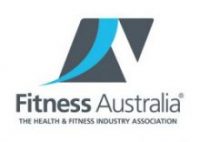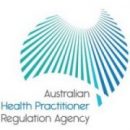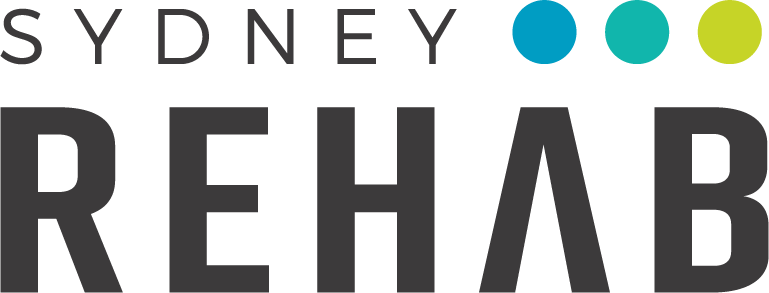What to expect?? After a traumatic brain injury (TBI), you or your loved ones cognitive ability may change mildly or drastically. Therefore it is important that we involve family, friends or whoever will be helping on the road to recovery. It can be a stressful period especially in the early days, however the therapy does not need to be stressful. We will assess all deficiencies and put a plan in place for all of them. Our team of Physiotherapists, Exercise Physiologists and Occupational Therapists are trained to be able to prescribe the correct style, dosage and intensity of exercise to complement your medical treatment plan and to assist you through it from start to finish. You can expect to feel nurtured throughout the process.
Evidence based:
When you are dealing with medical issues that have complex effects on the body, an experienced practitioner will administer the latest evidence based therapy. At Sydney Rehab our therapists are bound by multiple professional bodies regulatory requirements. Our professional bodies including, ESSA, APA, FIA and AHPRA ensure that our standards are maintained yearly. Our therapists have many years of experience in the health industry, and when you want results, experience is what you need.





Injury Prevention:
TBI patients sometimes have less cognitive ability to make risk assessments, therefore opening themselves up to higher rates of injury. It is important for us to understand this and sometime the patient will have a poorer ability to explain their prior injuries. This is why a highly trained Neurological therapist with strong musculoskeletal knowledge is important. The last thing you need is an extra issue on top of what you are going through. We do this through a physiotherapy evidence based approach for injury prevention. Our therapists have the highest qualifications in the industry. We have an extensive background in musculoskeletal physiotherapy with our director having over 16 years of experience with musculoskeletal therapy.
Experience an EFFECTIVE treatment, the only difference is that it is safer because of our professional understanding of injury and the mechanisms that cause injury.
The latest equipment and technology:
We have state of the art equipment that will help you get on track. For mobile services we are able to use equipment you may have and we also bring our own. Our equipment allows us to carefully measure your body’s strength and endurance and then re-assess to see the progress you have made. Our aim is to teach you how to eventually take care of yourself and grow your knowledge and our equipment allows us to do this with feedback for you and your therapist.
What is Traumatic Brain Injury?:
Traumatic Brain Injury (TBI) is an insult to the brain, caused by external physical force that may produce a diminished or altered state of consciousness, which results in an impairment of physical and cognitive abilities. A concussion is the most common type of traumatic brain injury but of course there are varying degrees of impact and damage, both temporary or permanent.
TBI can be classified based on severity and mechanism (closed or penetrating head injury), or other features (e.g., occurring in a specific location or over a widespread area) TBI displays a broad and varied spectrum of possible lesions and resulting potential disabilities. Each person has a different set of premorbid abilities and a different psychosocial situation. It is because of this, the goals of their rehab need to be holistic, long term and individualised to each patient and to his or her family.
Rehab settings are predominantly characterised by a treatment team approach to meet the complex needs of the person recovering from severe or extremely severe TBI. TBI rehab physicians are responsible for the overall coordination of care both in the inpatient and outpatient settings, and provide expertise with the immediate and ongoing care of these injuries. Other team members would include neuropsychologists, rehabilitation nurses, physiotherapists, exercise physiologists, occupational therapists, speech therapists, vocational counsellors and social workers/care coordinators and case managers.
The Australian Institute of Health and Welfare has reported a TBI rate of 107 per 100 000 population in Australia. Most studies suggest that approximately 20% of patients with TBI admitted to hospital have sustained moderate or severe head injuries, and the other 80% have mild injuries. Australian evidence shows that the incidence of TBI peaks in the age group 15–35 years, and is more common in males. Much of this sex difference is thought to be related to risk-taking behaviour. In Australia, motor-vehicle-related trauma accounts for about two-thirds of moderate and severe TBI. Falls and assaults being the next most common causes and sporting accidents account for a far greater percentage of TBI mild injuries.
Two reliable indicators of damage severity include how long the person is in a coma and the length of time in post-traumatic amnesia (PTA). In Australia, the most common means of assessing PTA is the Westmead PTA Scale. Clinical severity scores and neuro-imaging techniques are also used for diagnosing and determining the severity of brain injury. The commonly used clinical severity score is the Glasgow Coma Scale (GCS).
Call Sydney Rehab today to discuss this condition and how rehab can help you with your particular situation.
Why seek treatment with someone who lacks the qualifications to deal with your condition?
Stroke patients have vast needs and of course require a clear understanding of the steps to be able to optimise recovery. We have had years of experience with Stroke patients. Therefore we know how to provide an effective program to suit your specific needs. Our referrers know the difference between us and the rest which is why we have developed a reputation in all our healthcare companies.
Try us, we believe our standards are second to none.
NDIS:
You may be eligible to claim under the National Disability Insurance Scheme. This is a relatively new scheme that provides a government assisted allowance for servies such as Physiotherapy, Exercise Physiology, Personal Training, Occupational Therapy and Dietetics. Please check with the NDIS to see if you are eligible.
Health Fund Rebates:
Where applicable you can use your private health for our services. Whats even better is that your therapist may even be dual qualified meaning you may be eligible to claim on two services (Physiotherapy AND Exercise Physiology). An already affordable service becomes even more affordable. Some funds even cover the whole cost!*
HEALTH FUND REBATES (*where applicable)
Where applicable you can use your private health for our services. Whats even better is that your therapist may even be dual qualified meaning you may be eligible to claim on two services (Physiotherapy AND Exercise Physiology). An already affordable service becomes even more affordable. Some funds even cover the whole cost!*
HEALTH FUND REBATES (*where applicable)
*Rebates vary between funds. Please check your Physiotherapy and Exercise Physiology coverage.
